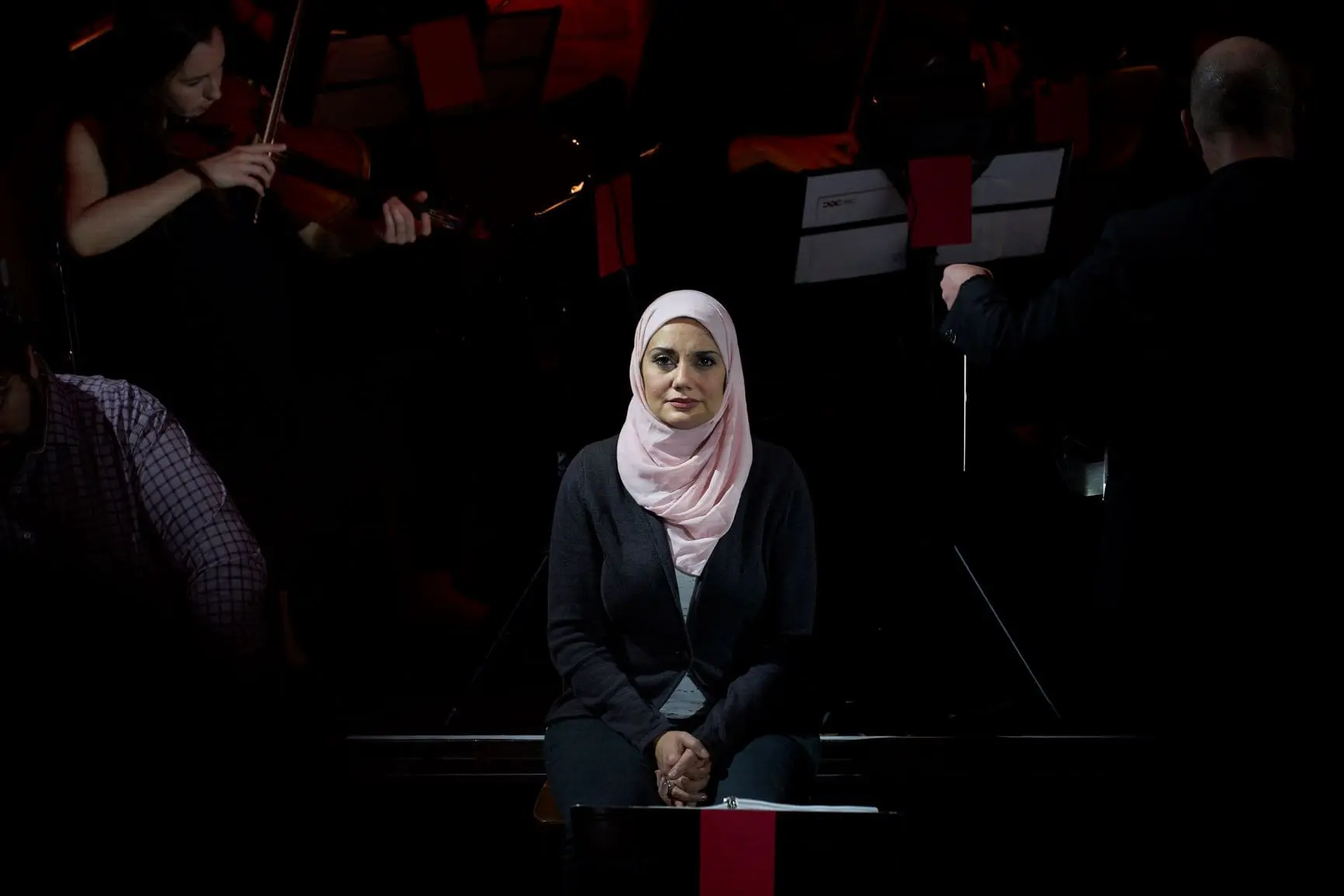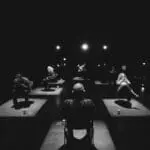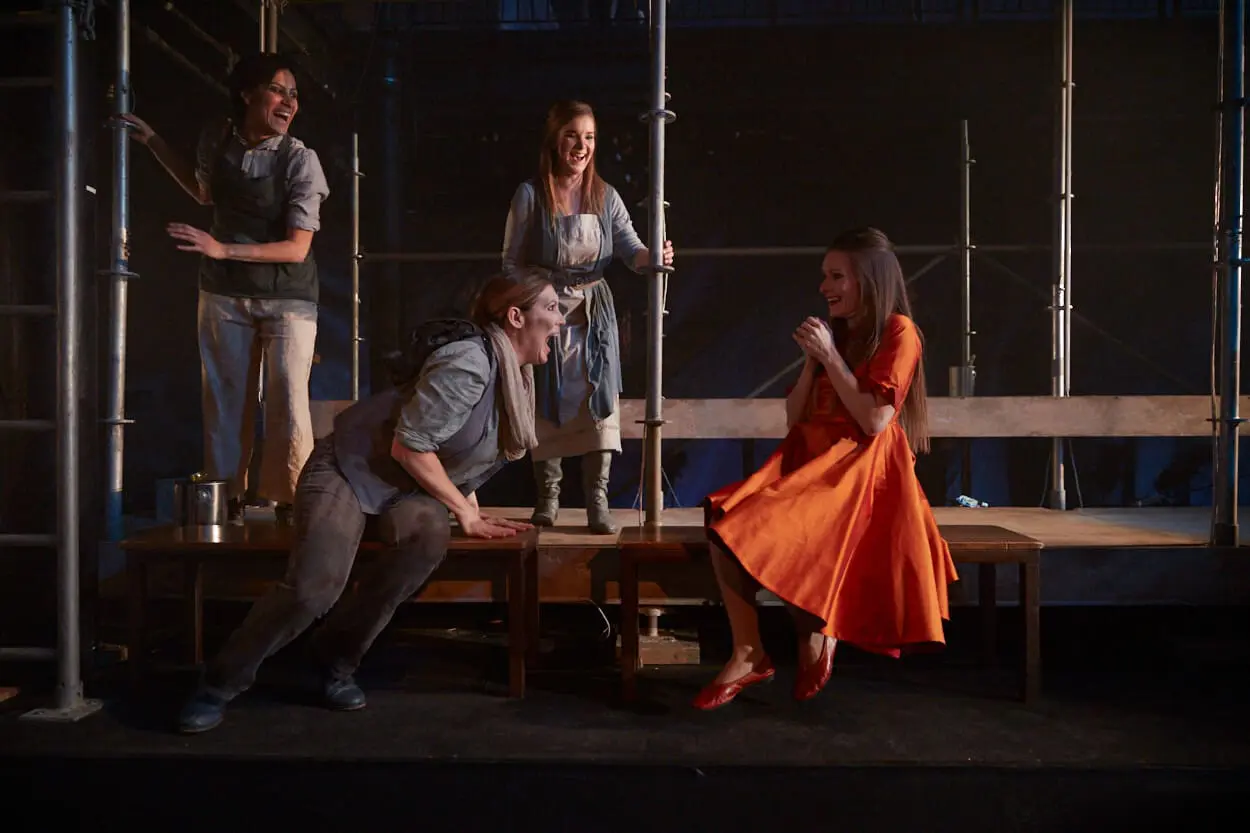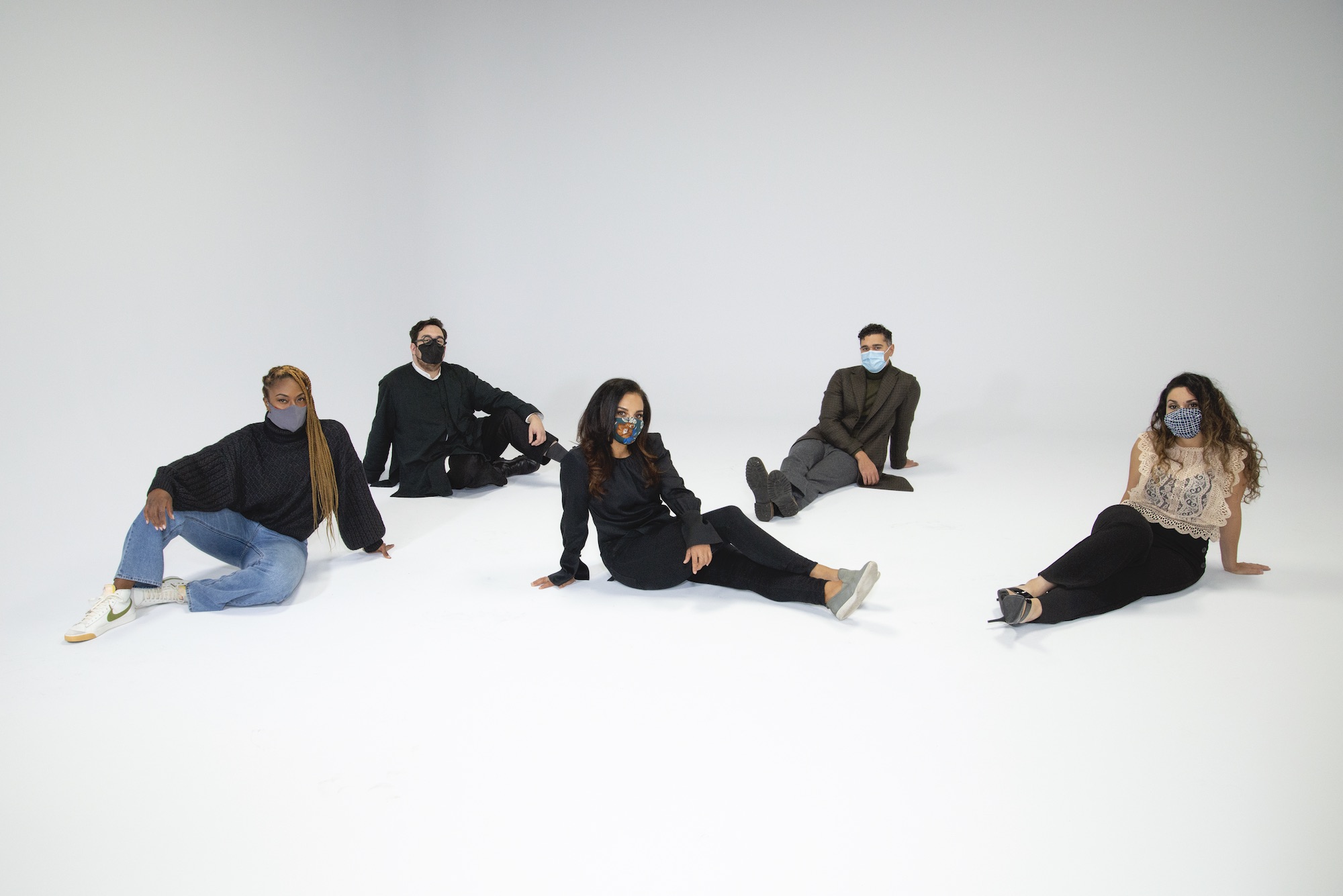Against the Grain Theatre’s Bound v.2 (seen Nov. 19th) is opera for our times. Handel arias and ensembles have been adapted into a production that appears to border on dystopian but is, in many ways, startlingly relevant despite its source music: four “wanted persons” are apprehended and being held by The State, characters inspired by real news stories and events. For a work in development, Bound v.2 is impressively realized—it will be exciting to see its final form next year.
The singing is uniformly outstanding. Naveen Dewan (tenor Andrew Haji) is the first character introduced, a doctor who trained in The State and is trying to return home to apply his medical knowledge there. He’s visibly distressed at being detained, speaking up somewhat unwillingly; Haji’s impressive voice initially restrained. This becomes apparent in a later scene when his vocalism is more powerful and clear, encouraged as he sings optimistically about contributing positively back home.
As a transgender man, Kelly Davidson (countertenor David Trudgen) is detained because of discrepancies between his identification documents and gender identity. Trudgen’s expressive voice alternates between determined frustration and a painful weariness: his character fights to have an identity recognized that in itself was a struggle for him to become aware of and accept. “Please, we must move on,” he pleads, an effective line from Joel Ivany’s libretto that addresses not only the need for society to progress toward equality but also the characters’ present immobility.
Noor Haddad (soprano Miriam Khalil) is a journalist detained for refusing to remove her hijab. Khalil has absolutely gorgeous vocal articulation and control, which she uses to animate convictions suited to her profession: “I believe the truth is stronger.” Even when her defiance gives way to loneliness, she draws strength from knowing there are others facing the same struggle.
Of all the characters, Ahmed Habib (Justin Welsh), a teacher who recently converted to Islam, seems the least developed. Welsh’s voice is strong and resonant, but much of the libretto for his sections emphasizes his religious conviction without exploring his relationship to his faith or providing an evolving response to his current situation, as with the other characters.
Because of the minimal production design—the four singers are seated in a row in front of the orchestra, standing to sing—I sometimes had to remind myself that everything these characters experience is in isolation. There are a handful of heightened moments where they sing together in order to voice collective fear, support, or hope. Affecting as these scenes are in demonstrating the power of communality, showing the characters transcending their physical barriers might have made them even more so.
The orchestration must have been a significant step forward from Bound v. 1, which featured individual arias accompanied by piano, interspersed with sections of dialogue. In Bound v.2 the dialogue is eliminated and the music is continuous. Composer Kevin Lau describes it as a hybrid: a mixture of Handel and Handel-influenced music with more contemporary composition. Stylistic transitions are noticeable and could possibly be smoothed out, though this isn’t necessarily a problem: the abruptness of some transitions felt purposeful and despite the disparate musical styles, the overall effect was unified and consistently evocative, a testament to Lau’s accomplished arranging.
Another new addition is sound design, primarily used to characterize the Orwellian State. Overtop rumbling white noise, the eerily controlled, disembodied voice of The State (Martha Burns) interrupts the opera with directives to be watchful for suspicious people and behaviours (such as speaking a foreign language). The digital audio begins to mirror the live music, a distorted mimicry that reinforces the characters’ awareness they are being observed. When Trudgen’s character hears fragments of his singing played back to him it’s a truly unsettling moment, and he looks appropriately distraught.
A line sung by Khalil sums up the ethos of the opera: “we are different but the same.” It’s a message that might seem simplistic given the real challenges of global connection and movement, of living in a multicultural society and the complexities introduced when people of vastly different backgrounds and values coexist. But the production isn’t ignorant to these challenges, and it’s not suggesting it has the answers. It offers hope for how we can relate to each other, a message no less powerful or radical for its simplicity.


















